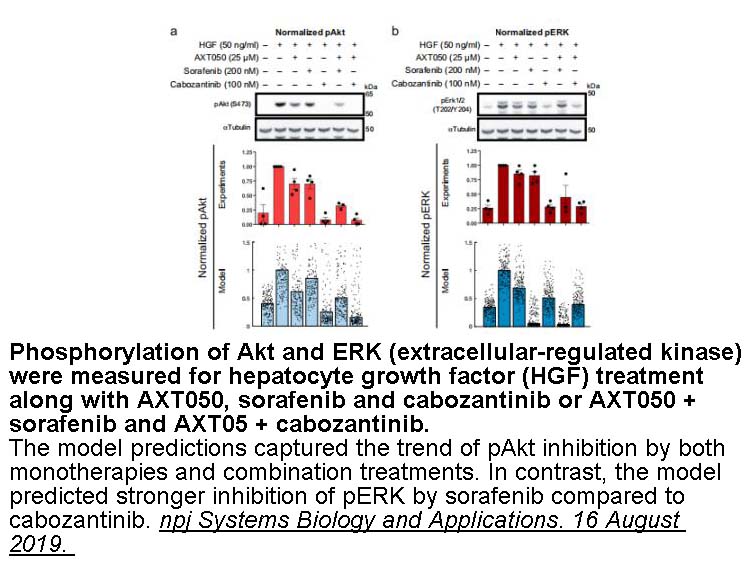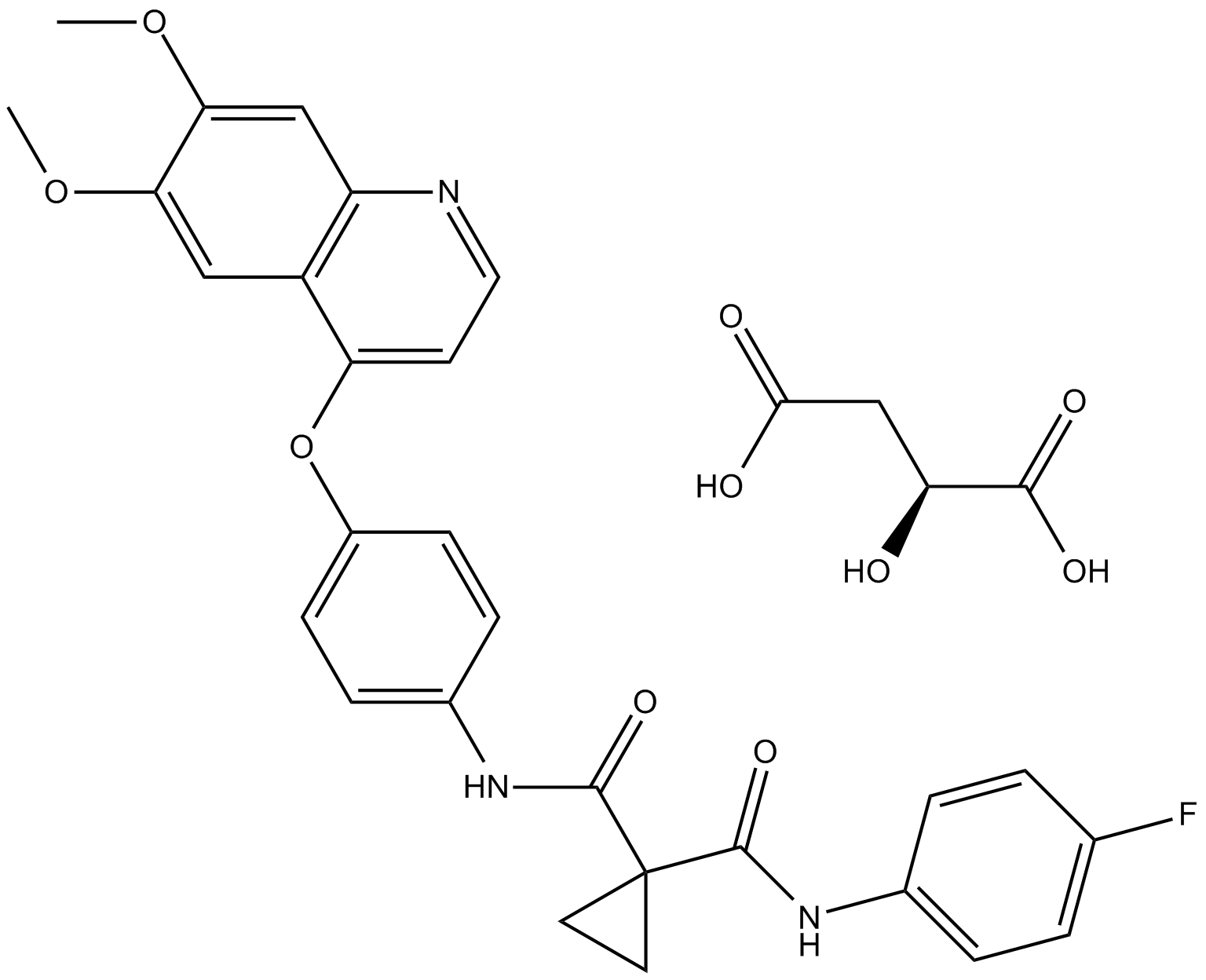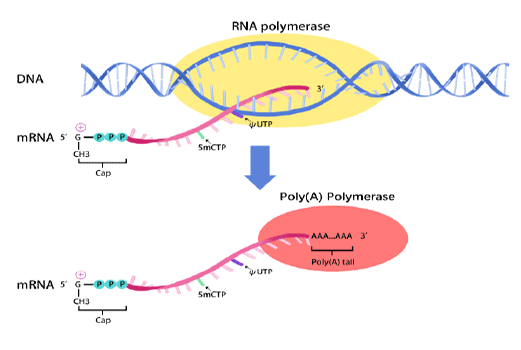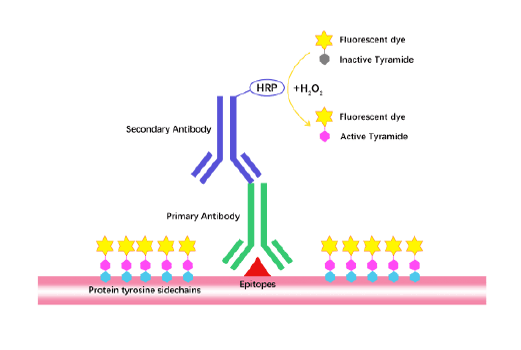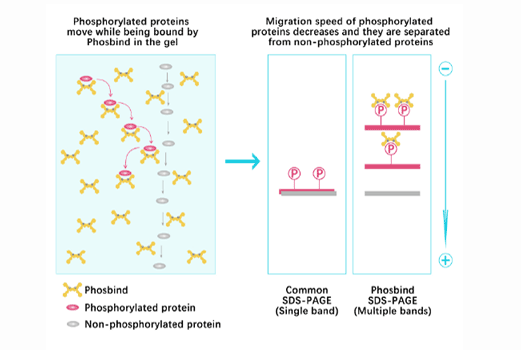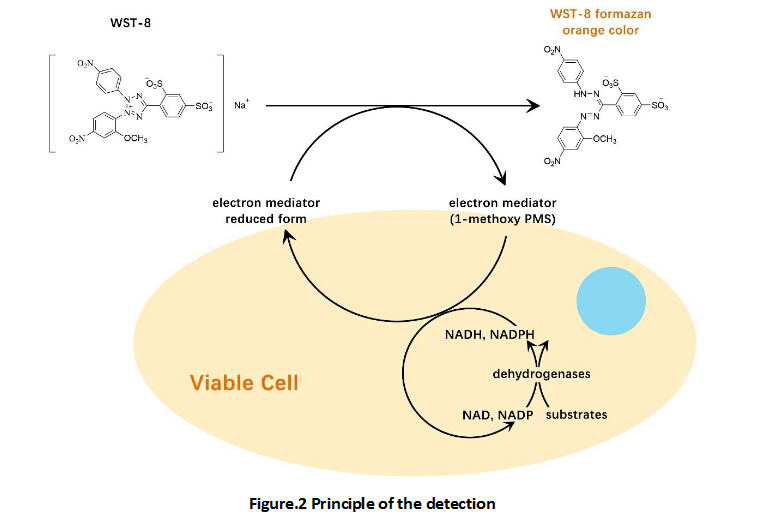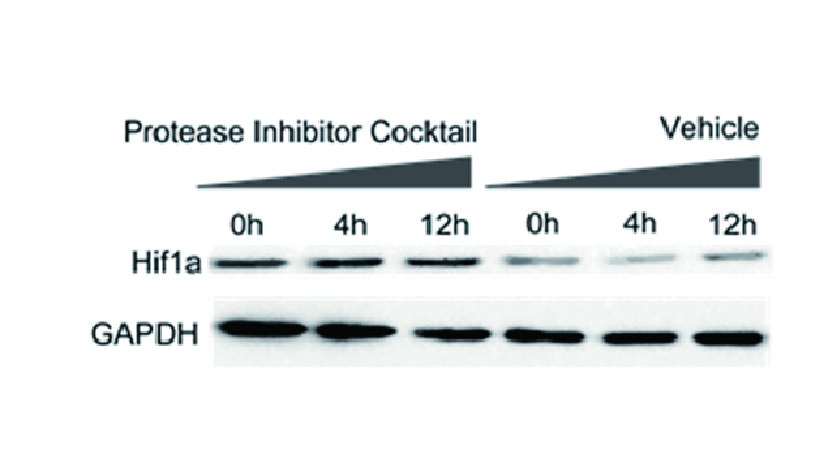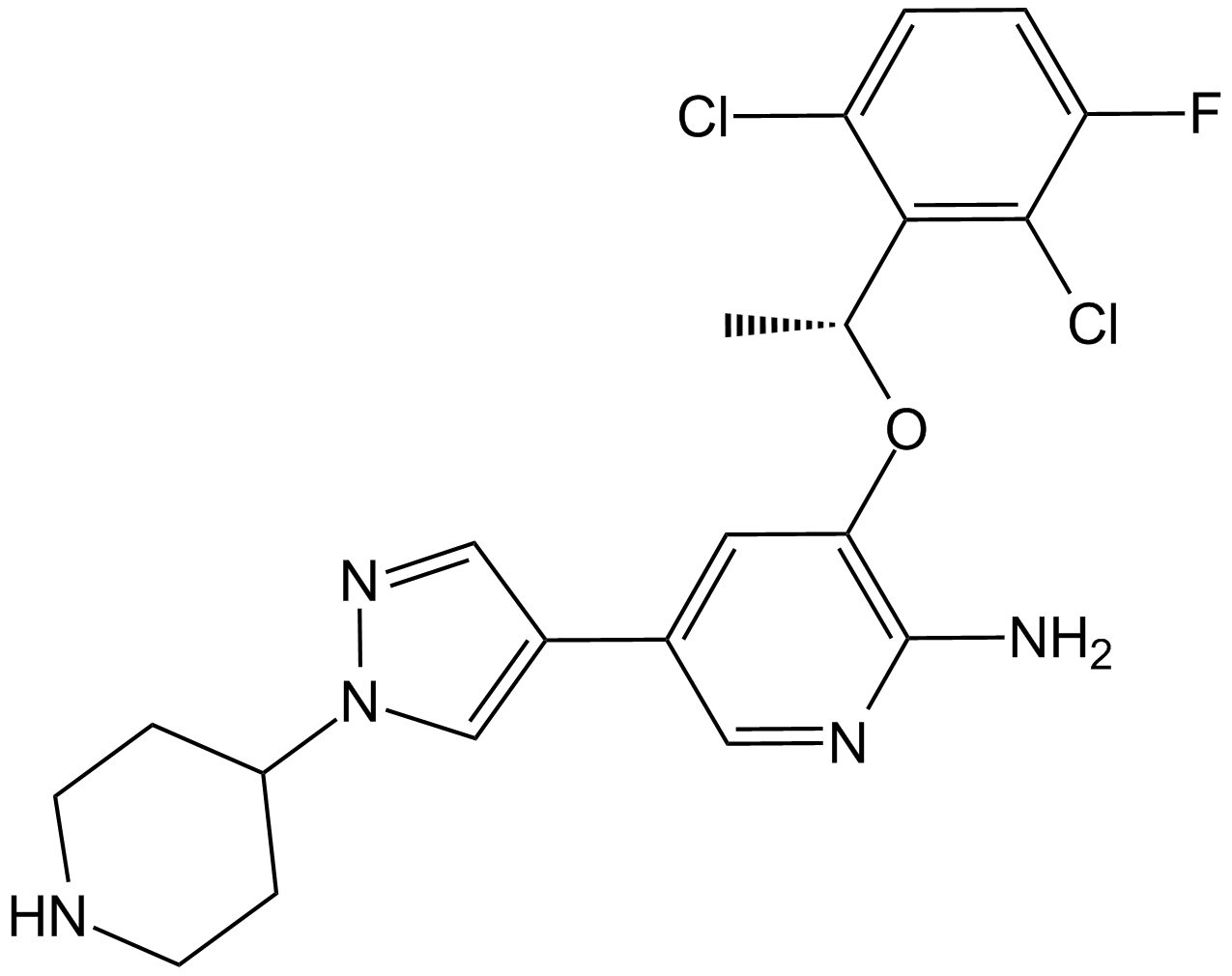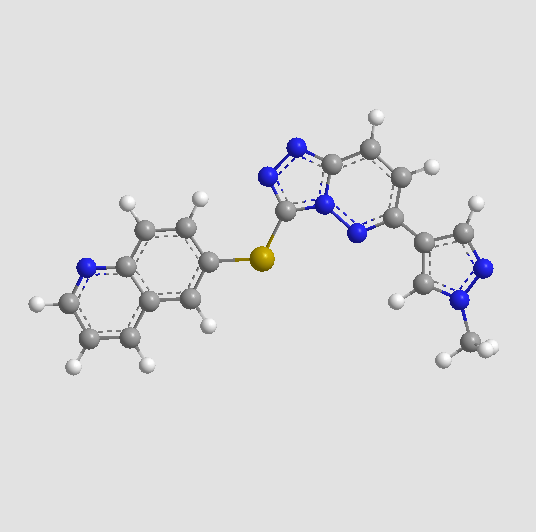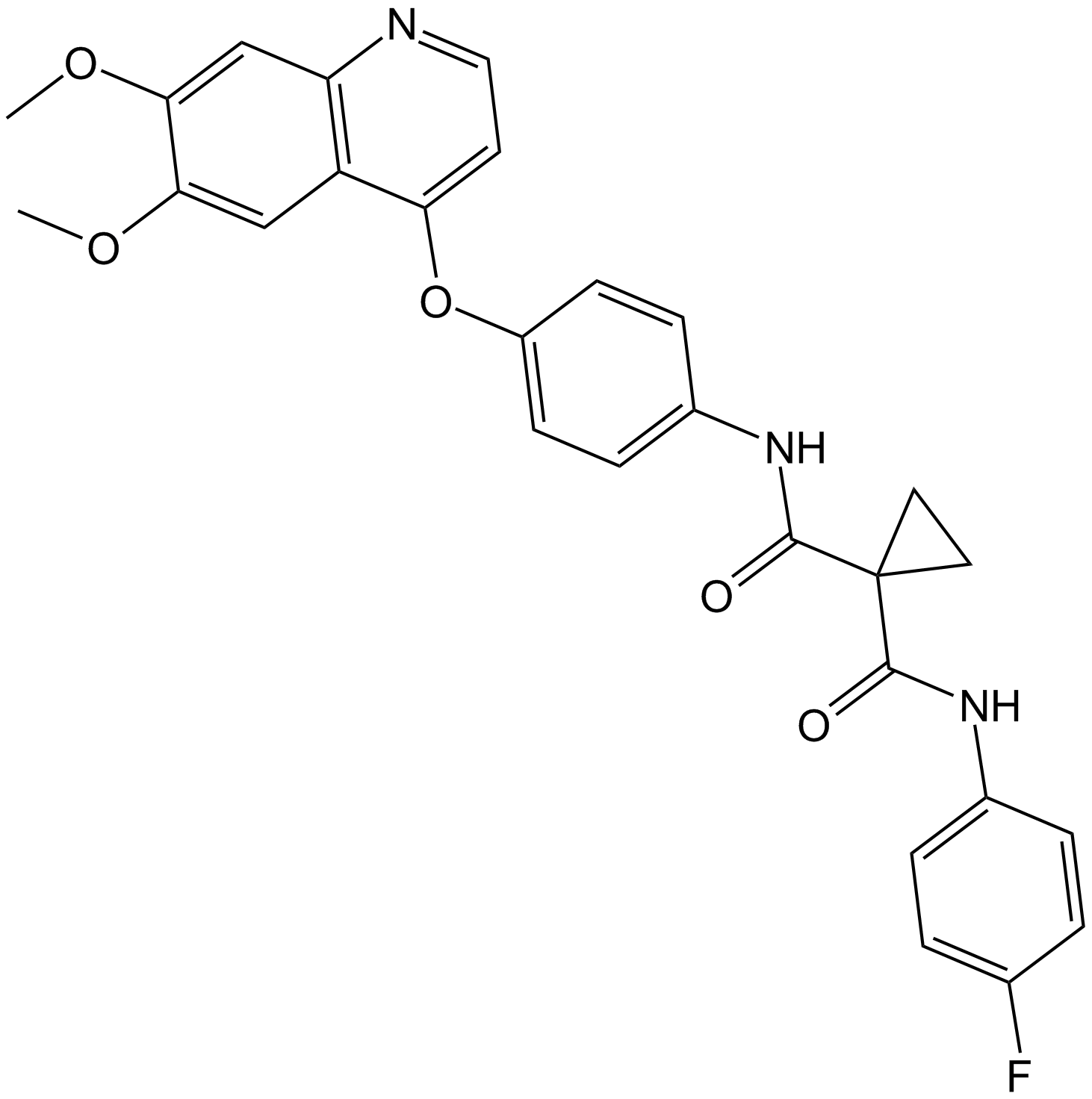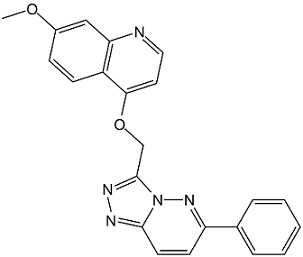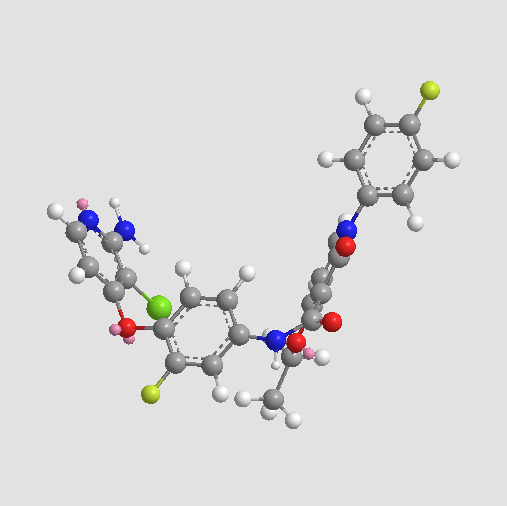Cabozantinib malate (XL184)
Cabozantinib malate is a potent inhibitor of MET andVEGF receptor2 with IC50 values of 1.3nM and 0.035nM [1].
Cabozantinib is a pan-tyrosine kinase inhibitor and is developed as an oral treatment of various cancers including MTC, GBM, NSCLC, pancreatic carcinoma, breast and colon cancer. The targets of cabozantinib are MET, VEGFR-2, RET, FLT3, KIT, AXL as well as TEK. In cellular assays, cabozantinib inhibits the phosphorylation of MET, VEGFR2, KIT, FLT3 and AXL with IC50 values of 7.8, 1.9, 5.0, 7.5 and 42μM, respectively [1, 2].
As a pan-tyrosine kinase inhibitor, cabozantinib can affect many biological processes. Cabozantinib inhibits the tubule formation of HMVEC cells with IC50 value of 6.7nM. In B16F10 cells, cabozantinib inhibits HGF-inducedmigration and invasion with IC50 values of 31nM and 9nM, respectively. Moreover, cabozantinib shows anti-proliferation efficacy in a variety of tumors such as SNU-5, Hs746T, MDA-MB-231 and U87MG. It is also reported that the combination of cabozantinib and gefitinib can cause potent inhibition of the gefitinib-resistant HCC827GR6 cell line [1, 2].
References:
[1] Yakes F M, Chen J, Tan J, et al. Cabozantinib (XL184), a novel MET and VEGFR2 inhibitor, simultaneously suppresses metastasis, angiogenesis, and tumor growth. Molecular cancer therapeutics, 2011, 10(12): 2298-2308.
[2] Zhang Y, Guessous F, Kofman A, et al. XL-184, a MET, VEGFR-2 and RET kinase inhibitor for the treatment of thyroid cancer, glioblastoma multiforme and NSCLC. IDrugs, 2010, 13(2): 112.
| Storage | Store at -20°C |
| M.Wt | 635.59 |
| Cas No. | 1140909-48-3 |
| Formula | C32H30FN3O10 |
| Solubility | ≥31.8 mg/mL in DMSO; insoluble in H2O; ≥2.5 mg/mL in EtOH with gentle warming and ultrasonic |
| Chemical Name | 1-N-[4-(6,7-dimethoxyquinolin-4-yl)oxyphenyl]-1-N'-(4-fluorophenyl)cyclopropane-1,1-dicarboxamide;(2S)-2-hydroxybutanedioic acid |
| SDF | Download SDF |
| Canonical SMILES | COC1=CC2=C(C=CN=C2C=C1OC)OC3=CC=C(C=C3)NC(=O)C4(CC4)C(=O)NC5=CC=C(C=C5)F.C(C(C(=O)O)O)C(=O)O |
| Shipping Condition | Small Molecules with Blue Ice, Modified Nucleotides with Dry Ice. |
| General tips | We do not recommend long-term storage for the solution, please use it up soon. |
| Cell experiment [1]: | |
|
Cell lines |
TT cells |
|
Preparation method |
Soluble in DMSO > 31.8mg/mL. General tips for obtaining a higher concentration: Please warm the tube at 37℃ for 10 minutes and/or shake it in the ultrasonic bath for a while. Stock solution can be stored below -20℃ for several months. |
|
Reacting condition |
13.7, 41, 123, 370, 1111, 3333nmol/L for 1h |
|
Applications |
Cabozantinib inhibited multiple forms of oncogenic RET kinase activity, including M918T and Y791F mutants. Additionally, it inhibited proliferation of TT tumor cells that harbor a C634W activating mutation of RET that is most often associated with MEN2A(multiple endocrine neoplasia) and familial MTC (medullary thyroid cancer). |
| Animal experiment [2]: | |
|
Animal models |
Female nu/nu mice with H441 cells xenograft tumor |
|
Dosage form |
a single 100 mg/kg dose, orally administration |
|
Application |
In mouse models, cabozantinib dramatically altered tumor pathology, resulting in decreased tumor and endothelial cell proliferation coupled with increased apoptosis and dose-dependent inhibition of tumor growth in breast, lung, and glioma tumor models. Importantly, treatment with cabozantinib did not increase lung tumor burden in an experimental model of metastasis. |
|
Other notes |
Please test the solubility of all compounds indoor, and the actual solubility may slightly differ with the theoretical value. This is caused by an experimental system error and it is normal. |
|
References: [1]. Yakes F M, Chen J, et al. Cabozantinib (XL184), a novel MET and VEGFR2 inhibitor, simultaneously suppresses metastasis, angiogenesis, and tumor growth. Molecular cancer therapeutics, 2011, 10(12): 2298-2308. [2]. Zhang Y, Guessous F, et al. XL-184, a MET, VEGFR-2 and RET kinase inhibitor for the treatment of thyroid cancer, glioblastoma multiforme and NSCLC. IDrugs, 2010, 13(2): 112. |
|
Quality Control & MSDS
- View current batch:
Chemical structure

Related Biological Data
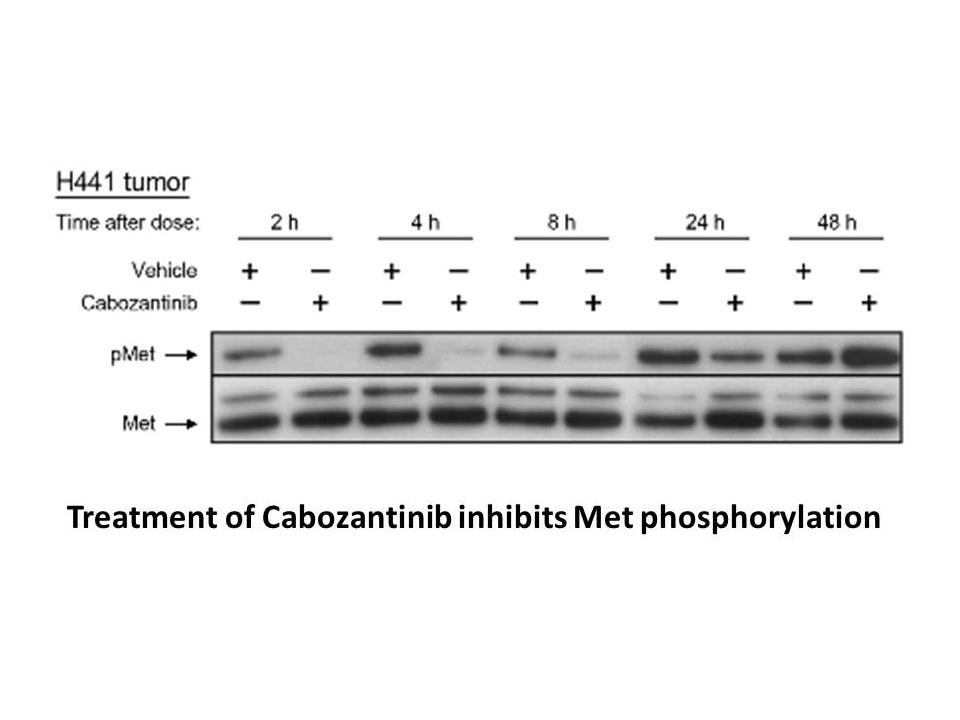
Related Biological Data
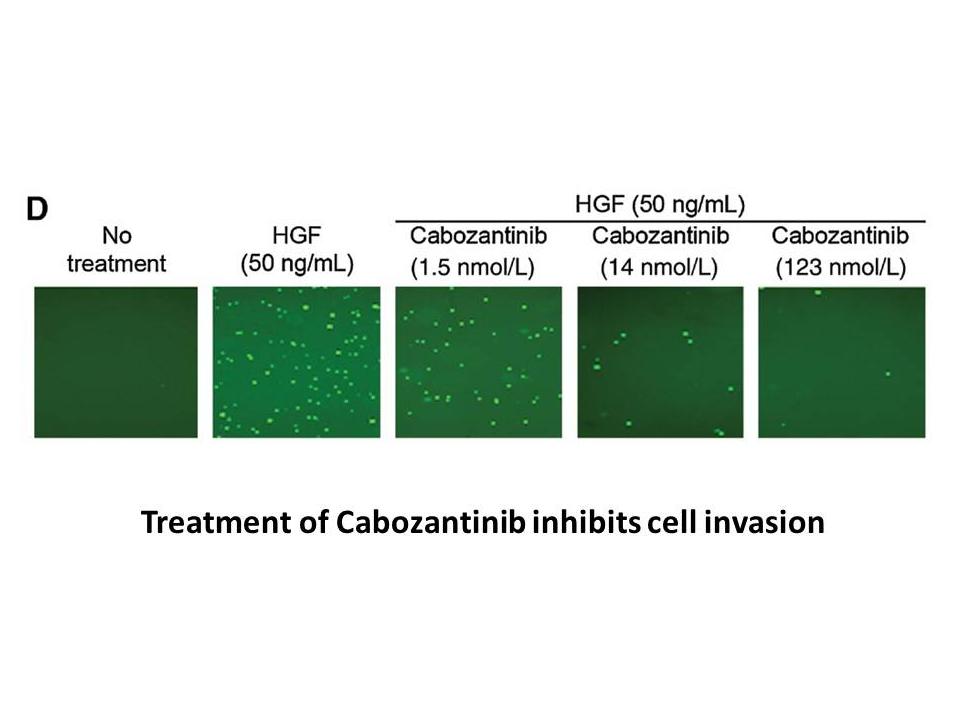
Related Biological Data
